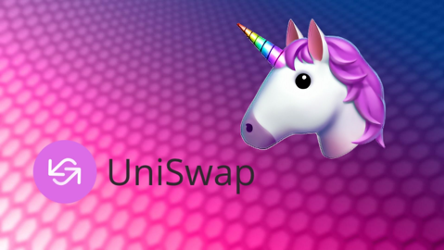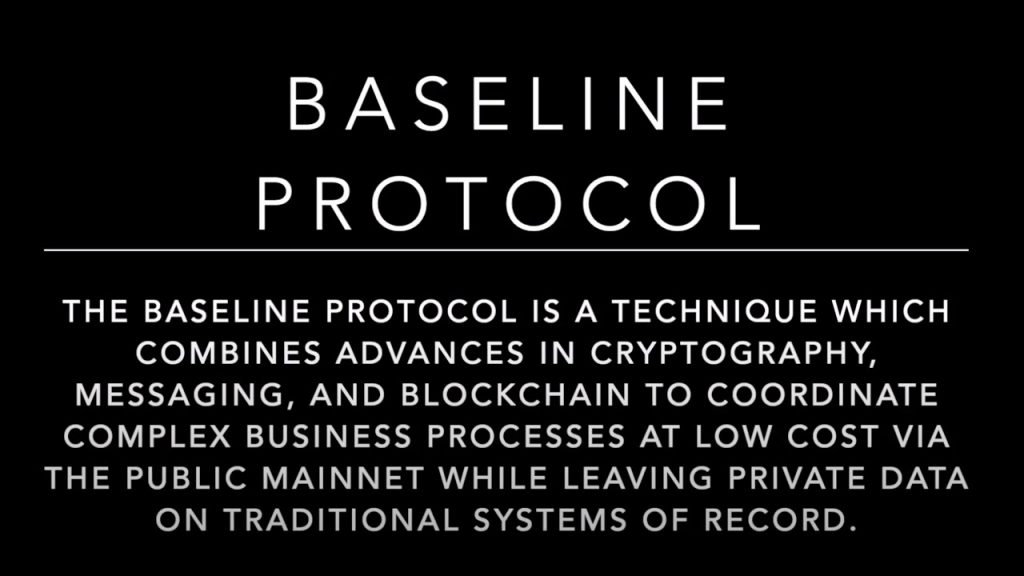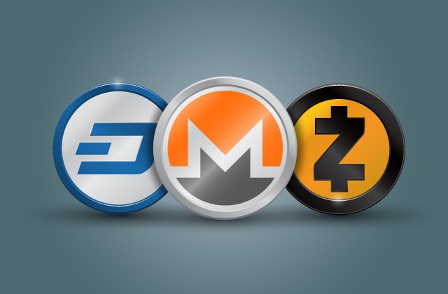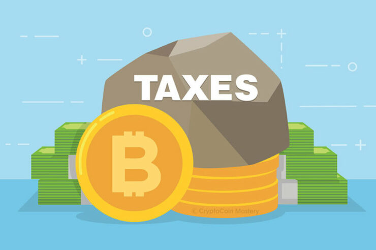
As you may know, the crypto industry is one of the fastest moving and most rapidly-expanding sectors in the world. Moreover, that brings announcements of new projects or partnerships practically on a daily basis. With so much going on, it can be hard to keep up. Nevertheless, this article breaks down some of the top trends in crypto in 2020, so you’ll know what to keep an eye out for.
For anyone new to cryptocurrency, plus those who are interested who are already in the market, we have broken down a list of the top trends in crypto to watch in the upcoming 2020 and 2021 market.
In this article, we discuss the biggest themes of the year so far and dive a little further into different trends that are beginning to flourish as we enter the third quarter of 2020.
After reading this you will have a deeper insight into the different sides of crypto and the many different services available in the space, alongside the knowledge and education of the top trends in crypto that many are turning to for their latest investments.
As always, if you are looking to learn even more about crypto and the top trends in crypto during 2020 and moving on, please consider enrolling in Ivan on Tech Academy. Join over 20,000 students already learning about blockchain and crypto!
Top Trends In Crypto 2020
DeFi
Decentralized Finance has taken the crypto world by storm this year. DeFi is generally used as an umbrella term, covering many different aspects of financial tools that are now available on a decentralized network such as lending, borrowing, and trading.

The origin of the name ‘Defi’ was conjured up in a WhatsApp group of computer scientists and developers within the industry, trying to find a name to brand and market these financial services.
DeFi has grown to become the leading sector of cryptocurrencies in 2019 according to Consensys research.
DEXs
Decentralized exchanges are seriously competing with centralized exchanges right now. Recently, trading volumes on the Uniswap platform were larger than those of Coinbase Pro, with the decentralized exchange gaining more than 10x in just a month. This was a huge achievement for the DeFi space.

There is a clear trend right now toward DEXs. Registering for CEXs such as Coinbase and Binance can be time-consuming and require users to submit KYC (Know Your Customer) information to make trades. Crypto traders are opting for decentralized exchanges and peer-to-peer lending platforms such as Uniswap as they only require a few clicks before a trade can be made.
Despite record transaction fees on the Ethereum network, Uniswap is the exchange of choice for many investors as the platform gives users early access to many of the hidden gems before they reach the larger exchanges. Though $50 gas fees will surely price some people out of the market, many are still willing to pay to get exposure to a promising token early.
Yield Farming/ Liquidity Mining
Yield farming is a process in DeFi that encourages users to participate in a platform or protocol, often by offering governance tokens and voting rights to vote on changes to the protocol. Yield farmers can borrow assets at a low-interest rate from a Defi platform against collateral, then supply assets at a high-interest rate to another platform.

Yield farming has been around since 2019, with projects such as Aave, Compound, and Maker pioneering the technology. More recently, however, a new wave of high-risk, high-yield platforms have started coming to prominence. You may have come across some “food-tokens” in the Defi space such as YAM, SUSHI, KIMCHI, or HOTDOG. August was a crazy month for Defi as many of these meme-coins drew insane amounts of capital into the DeFi space.
If you’re new to crypto and you’re wondering what all the fuss is about, be careful! Many of these projects appear to be exit scams and un-audited, with the associated tokens seeing huge pumps followed by colossal dumps. If someone is earning a token from yield farming by simply providing liquidity to a platform, there is a high chance that they will sell this coin to take profits. Don’t be the one left holding the bag, make sure to do your own research before investing in the newest DeFi coin on the market.
Interoperability
The Ethereum network has been the focal point for much of the last year with the rise of DeFi and the ever-elusive 2.0 upgrade just around the corner. The network has seen record congestion which has resulted in astronomical transaction fees, caused largely by the Defi frenzy. While this clearly points towards the adoption of crypto and blockchain, for some, the fees are just too much.

Several other blockchains have risen to prominence in recent months as the gap in the market is wide open for non-Ethereum based DeFi.
Both Cosmos and Polkadot are focusing on interoperability between blockchains, with Polkadot branding itself “the blockchain of blockchains”. Using the platform’s own parachains and parathreads, Polkadot connects different blockchains and transfers information easily from one blockchain to another.
The key incentive for most Polkadot users at the moment is the lower transaction fees and faster transaction times.
Enterprise
Several stories have emerged in recent months about the use of the public Ethereum blockchain by big businesses. Platforms such as Baseline Protocol and Quorum are paving the way for enterprise blockchain implementation.

When the big money comes to crypto and major industries begin to implement the technology, this points towards mass adoption.
Are you interested in using blockchain technology in your company? In that case please take a look at the courses on Ivan on Tech Academy. Ivan on Tech Academy consistently produces real-life success stories and now you can get a 20% discount by using the special promo code BLOG20.
Supply Chain
Advancements in technology have optimized all kinds of businesses over recent years, however, the supply chain is lagging behind and is largely unchanged over the last decade or so.
The use of blockchain technology within supply chain management has increased dramatically this year, as shipping networks across the globe come to terms with the benefits of this innovation.
Many of us don’t actually know where our food comes from. It has become increasingly difficult for suppliers and consumers to verify the authenticity and proof-of-origin of the food we consume.
The use of blockchain in supply chain management can ensure that food standards are maintained and that nobody should be subject to low quality food products. By tracking each step of the process on the blockchain, manufacturers and suppliers are incentivized to keep tabs on every step of the process to ensure that what is on our plates is a verifiable food product.
The blockchain can reduce costs in the supply chain by sharing data between companies and eliminate many of the pain points within the industry which can cause illness.
Institutional Investment
Considering the use of Bitcoin as a hedge against inflation in many developing countries, in the face of global economic uncertainty, it comes as little surprise that some of the world’s wealthiest individuals are turning to cryptocurrency as a way to preserve their wealth and purchasing power.

That being said, many traditional investors and high-net-worth individuals are reluctant to hold custody of private keys when they do not understand the nuances of blockchain technology. To remedy this, firms such as Grayscale are providing a number of products and services aimed at the wealthiest in society, providing exposure to cryptocurrency without having to physically hold the asset.
This year Grayscale launched a T.V advert campaign in the U.S promoting its products to millions of people. This is a massively bullish sign for crypto adoption as more people begin to understand the benefits of crypto investments compared to traditional stocks and shares. It has become common for traditional investors to hold a percentage of Bitcoin in their portfolio, with previous skeptics even coming out of the woodwork, publicly changing their stance on cryptocurrency.
NFTs
Non-fungible tokens came to prominence with the release of Crypto Kitties in 2017.
Crypto Kitties is an Ethereum-based blockchain game where players can purchase, collect, breed, and sell virtual cats. NFTs allow for assets to be held on the blockchain in a way that can guarantee authenticity and proof of origin. This is particularly useful for unique and rare in-game items.
Fast-forward to 2020 and NFTs are used for many purposes. NFTs allow assets to be tokenized on the blockchain. Fungible cryptocurrencies such as Bitcoin or Ethereum are interchangeable, meaning that 1 BTC in my pocket is the same as 1BTC in your pocket, and there is no difference between Bitcoins. A non-fungible token can store unique data pertaining to an asset or property on the blockchain, in an immutable and transparent way.
NFTs are used for digital art, certifications & licensing, and gaming, with potential future use cases in healthcare and real estate.
Privacy Coins
Privacy coins allow users to make practically untraceable transactions on the blockchain with minimal risk of traceability. Privacy coins such as Monero, Dash, and Zcash can be concealed on the blockchain by a process known as mixing, which pools several transactions together so that the trail of each transaction cannot easily be followed.

This is especially useful for large businesses wanting to maintain a level of security as privacy coins make it difficult to isolate transactions to determine who on the blockchain is a whale.
Oracles
Oracles are used to bring real-world data onto the blockchain to verify that certain conditions have been met within a smart contract. Oracles serve many functions and come in many different shapes and sizes.
Oracles are used for price feeds in Defi to ensure that a reliable data source is provided for the many cryptocurrencies involved in decentralized applications (DApps). When there’s a lot of capital at stake, DApps must draw their data from several reputable sources for them to be accurate.
Oracles such as Chainlink and Band Protocol have seen incredible gains due to increased usage and hype around the utility of oracles. For a DeFi protocol to use data from an Oracle, the team must pay for the service. For this reason, there is a lot of hype around oracles coming into this bull market as the demand for these services is higher than ever before, with no signs of slowing down!
Crypto Taxes
As financial regulators across the globe begin to come to terms with this new economic paradigm, crypto taxes have never been more important for traders, investors, businesses, and individuals. Crypto is no longer the wild frontier it once was, where transactions are settled under the hood of this exciting new technology.
If you want to avoid being stung in the future, it might be wise to consider setting aside a portion of your gains for tax purposes. Crypto.tax is a great way to compare the many different crypto tax services available to find the best service to fit your specific requirements. Several services available simply require users to upload a transaction history from their wallets for the breakdown of tax deductions to be calculated automatically.

Taxes can be a scary thing to a lot of people, however, spending just a little bit of time setting this up now could save you a lot of headache in the future.
Crypto taxation is becoming increasingly strict in the U.S, but businesses and individuals in Zug, Switzerland can now pay for their taxes using Bitcoin. Expect to see a wave of innovation in the crypto tax space as more services and solutions emerge to make the process much quicker and easier.
Crypto Insurance
The rapid expansion of DeFi and yield farming has created a gap in the market for smart contract insurance. Ethereum-based nexusmutual.io provides a decentralized alternative to insurance companies for protecting yield farmers against smart contract failure. By purchasing the NXM token, farmers can protect against the technical risk of smart contract failure. In the future, Nexus Mutual plans to offer wallet cover and regular insurance products such as earthquake cover.
Smart contract-based insurance platforms built on the Ethereum network could dramatically disrupt the traditional insurance sector in the coming years by improving efficiency and transparency in an outdated industry.
Conclusion
Blockchain technology is migrating into hundreds of different industries, catering for much more than just the financial sector.
Being involved at this early stage and educating yourself on the top trends in crypto gives you a massive advantage over the majority of the population, as cryptocurrency and blockchain technology remain a specialized niche.
It is important to try and stay up-to-date with crypto as the industry is so fast-paced, you could miss out on a potential opportunity to make substantial gains, or miss critical time-sensitive information when it comes to selling your crypto or taking profits.
Check out one of our other recent posts to learn how to keep up to date in crypto. As always, Ivan on Tech Academy and the many blockchain courses available there are also a crucial tool for understanding blockchain and crypto. There is a reason why Ivan on Tech Academy is quickly becoming the go-to place for blockchain education. Start learning about blockchain today!





